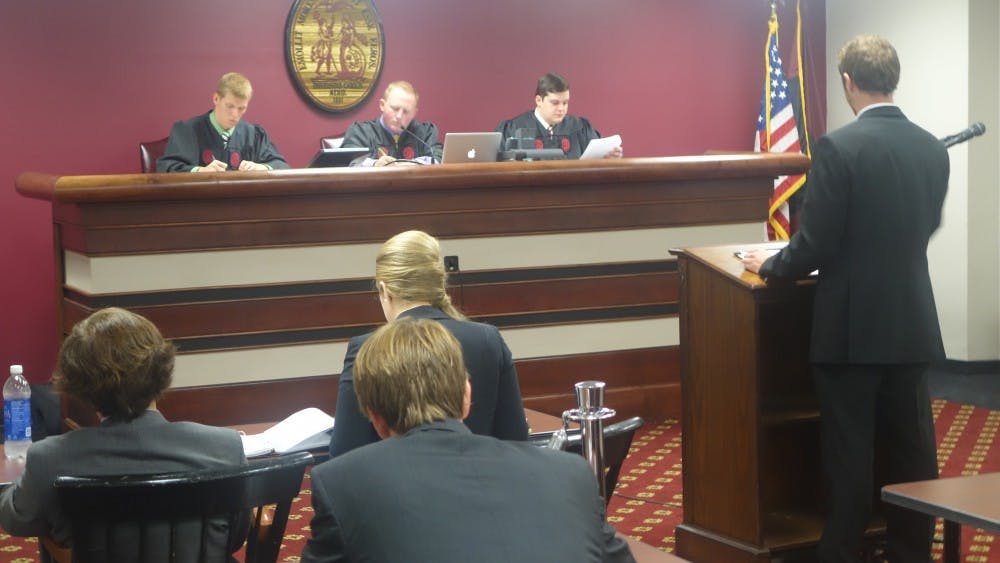Constitutional Council says both sides had same goals, ‘no actualized controversy’
After two hours of debate and deliberation, Constitutional Council threw out the organizational challenge against Student Government filed by the president of the South Carolina eSports Club.
The council unanimously decided that there was “no actualized controversy” and that “a resolution in support of either side would produce the same result,” Chief Justice Donnie Iorio said. At one point during the proceedings, Justice Emory Roberts questioned the need to even be holding the hearing.
“Both parties seem to have the same goals,” Roberts said. “Is this case even necessary at this point?”
The two parties’ goal was to implement the house of delegates within 30 days, which, thanks to the ruling, it now will. The house will be a lower legislative body consisting of representatives from USC’s more than 300 student organizations.
Devon Thurman and Student Body President Chase Mizzell said multiple times throughout the challenge process that they would work toward assembling the body regardless of the case’s outcome.
The codes establishing the house of delegates were enacted by Student Body President Meredith Ross at the end of her 2009-2010 term. They were lost sometime between the administrations of Student Body Presidents Joe Wright and Kenny Tracy, who served during the 2011-2012 and 2012-2013 SG terms, respectively.
Affadavits from Ross, Wright, Tracy and 2010-2011 Student Body President Ebbie Yazdani were submitted as evidence in the case. Wright was the last president to be aware of, but not act on the codes. His successor, Tracy, was completely unaware of them. They were rediscovered in March 2013 during a legislative audit.
ESports Club President Josh Snead, a former student senator, brought the challenge to SG to enact the codes when he and his organization felt that Mizzell would not enact them without the challenge. After the decision was handed down Monday night, Snead maintained that the house of delegates would not have been implemented unless he had gone through with the challenge.
Many past presidents interpreted the codes that define the house of delegates as an option, not a requirement, Thurman said in her arguments. Ross did not assemble the house because it was the end of her term. Yazdani said he saw the body as an optional measure. Thurman said Wright thought they were “left to be interpreted.”
After rediscovering the codes in March, Mizzell and his administration also thought they were up for interpretation, but hoped to assemble the house after appointing SG officials, Thurman said. Mizzell ran his presidential campaign partially on the promise of a similar body that would serve as an appointed “leadership council.”
Mizzell, Thurman and Snead all said they were pleased with the outcome of the case, though it was a dismissal.
“This decision really just gives Student Government the opportunity to move forward with the work Student Government is already doing with respect to implementing sections 700 through 799 of the constitutional codes and convening and meeting with the house of delegates within 30 days,” Thurman said.
For Snead, the engagement of student organizations in Student Government was what he was after all along.
“What matters is that the house of delegates is going to be carried out,” Snead said. “Student organizations are the real winners here.”

